Kerala Mussels (Kallumakaaya)— Varieties, Benefits, Risks, and How to Cook Them.
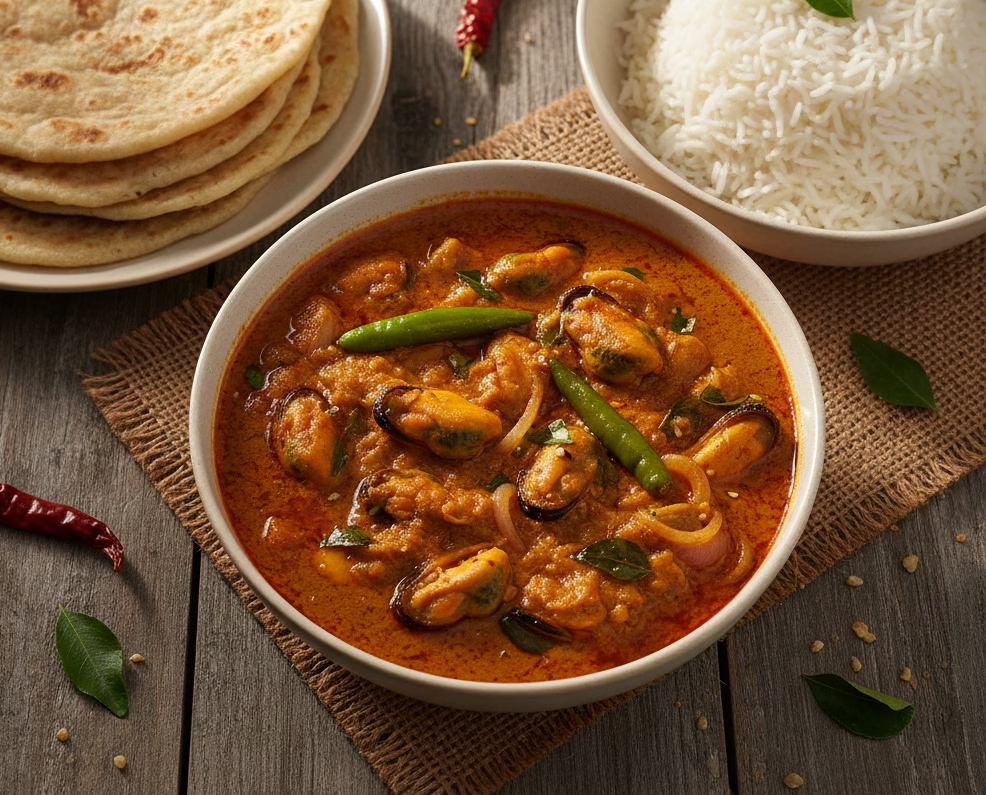
Hello Food Lovers!
If you love seafood, spices, and the rich culinary traditions of Kerala, then you’re in for a treat! Today, we’re diving into one of Kerala’s coastal gems — mussels, locally called kallumakaaya. From their varieties and nutritional benefits to the risks and best cooking practices, this guide will help you enjoy them safely and deliciously. Grab a cup of tea or some coconut water, and let’s begin!
🌊 What Are Kerala Mussels?
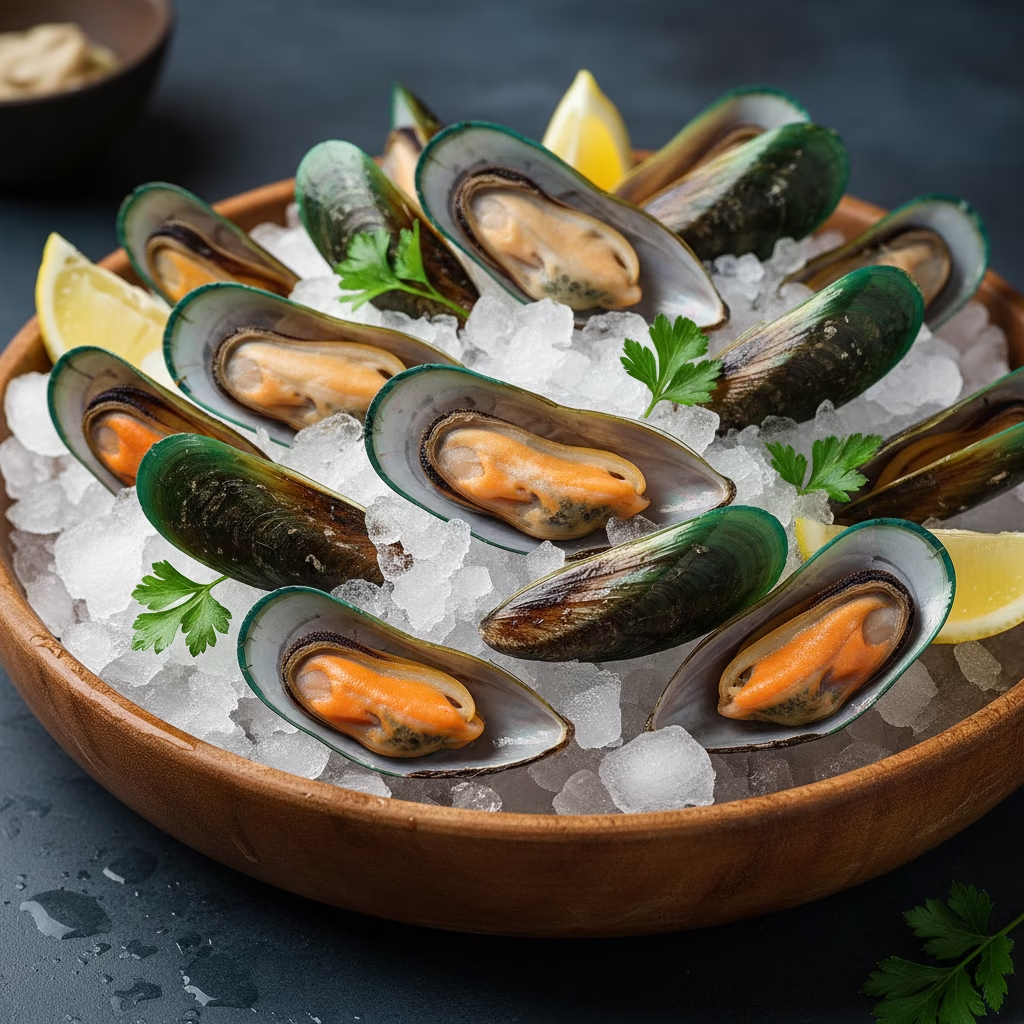
Mussels are a popular seafood in Kerala, especially along the southwest coast. The most common varieties include:
Green Mussels (Perna viridis) – widely farmed and harvested from estuarine and coastal waters.
Brown Mussels (Perna indica) – less common but also present in local waters.
Kerala’s long coastline, backwaters, and estuaries create ideal habitats for mussels, making them a staple in coastal diets. Rope-grown mussels, a method of sustainable aquaculture, are becoming increasingly popular, providing livelihoods for local communities while ensuring clean, safe seafood.
📝 Pro Tip: When buying mussels, choose live ones with tightly closed shells. If the shell opens when tapped lightly, discard it.
🍽️ Nutritional Powerhouse: Why Mussels Are Healthy
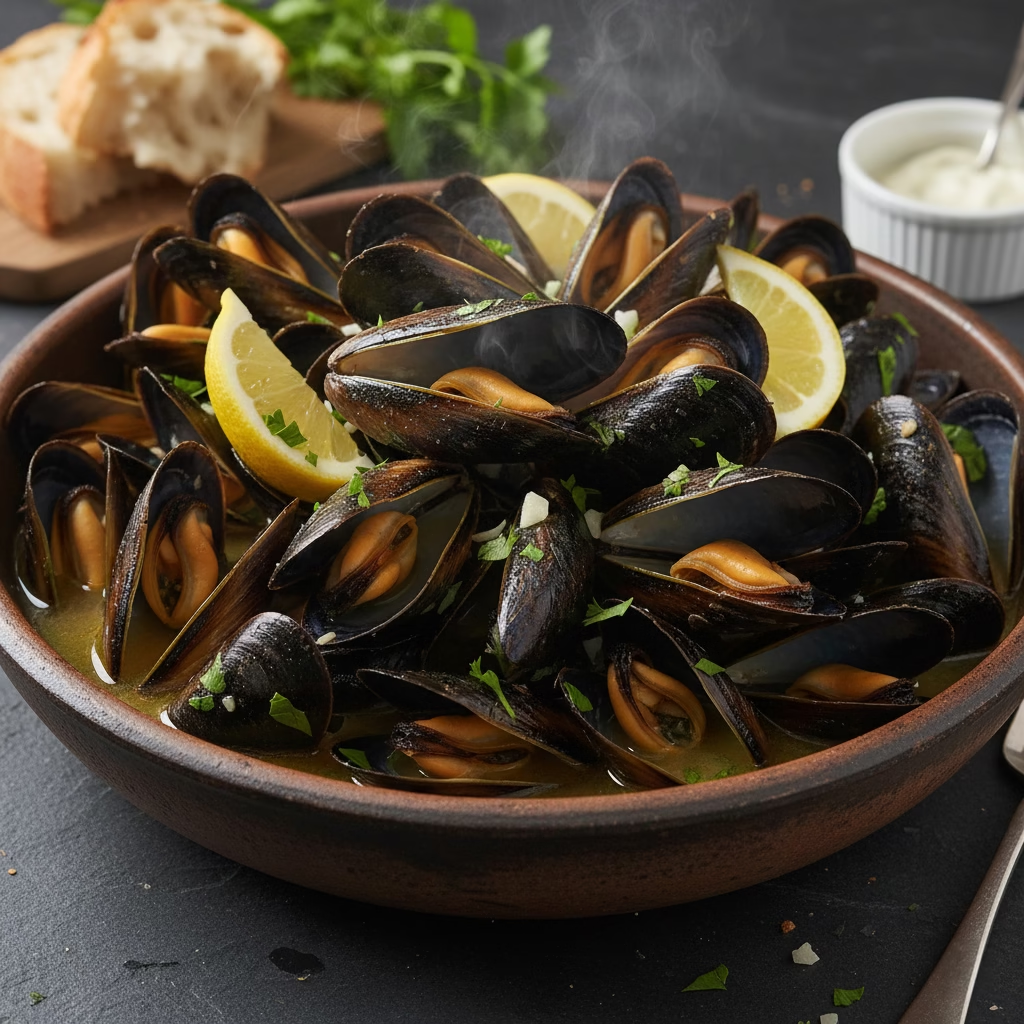
Mussels are more than just delicious — they are nutrient-dense and offer many health benefits:
High-Quality Protein: One serving (~85g) provides about 20g of easily digestible protein, containing all essential amino acids. Perfect for muscle repair and overall strength.
Omega-3 Fatty Acids: Mussels are rich in EPA and DHA, supporting heart, brain, and joint health.
Vitamins & Minerals: Packed with vitamin B12, iron, selenium, zinc, phosphorus, and magnesium — these nutrients help with energy, immunity, and metabolic functions.
Low in Calories & Fat: Mussels offer high nutrition with low calories, making them an excellent choice for a balanced diet.
Culinary delight aside, mussels are a perfect “food-first” approach for anyone seeking sustainable, nutrient-rich protein.
⚠️ Risks and Things to Watch Out For
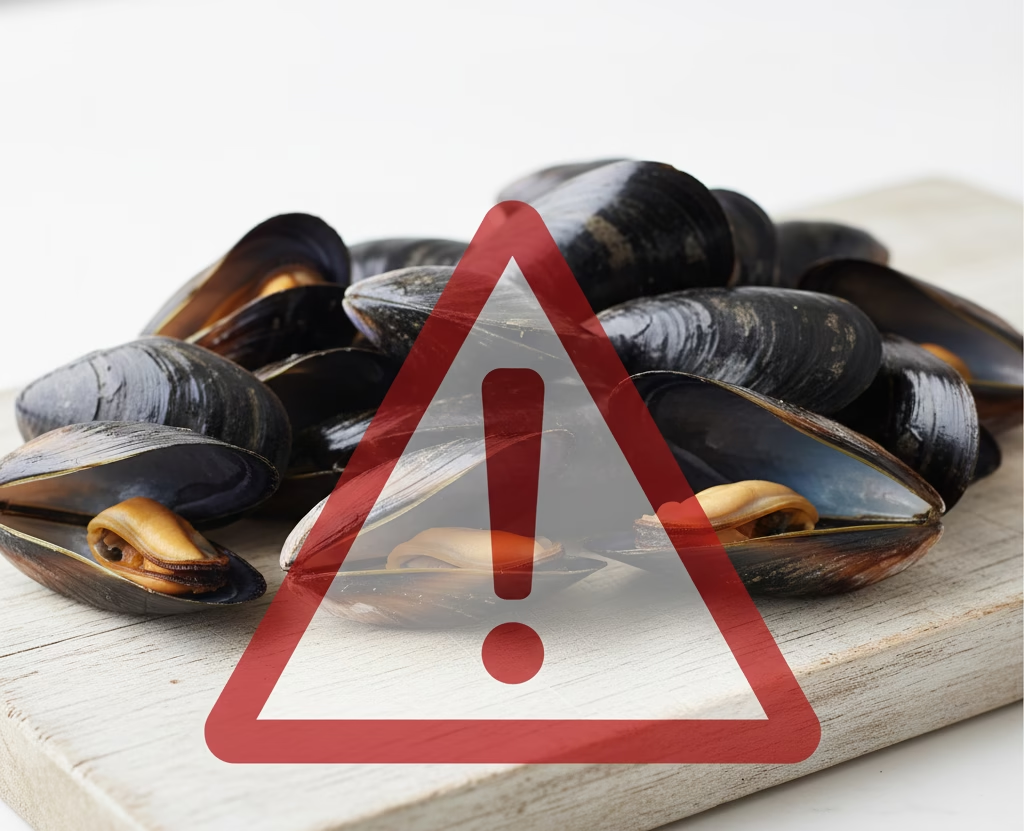
While mussels are nutritious, there are some risks:
Filter-Feeders — Contamination Risk: Mussels filter water, so they can accumulate pollutants like heavy metals or algal toxins if sourced from polluted waters.
Shellfish Toxins & Red Tides: During harmful algal blooms, mussels can contain toxins that cooking might not destroy, causing shellfish poisoning.
Foodborne Illness: Raw or undercooked mussels may carry bacteria or viruses. Cook thoroughly and discard unopened shells.
Allergies: Shellfish allergies are common; avoid mussels entirely if allergic.
Sustainability Concerns: Overharvesting or harvesting from polluted environments threatens mussel populations and ecosystems.
📝 Pro Tip: Prefer farmed or rope-grown mussels from trusted suppliers to reduce risk.
🍳 How to Cook Kerala Mussels at Home
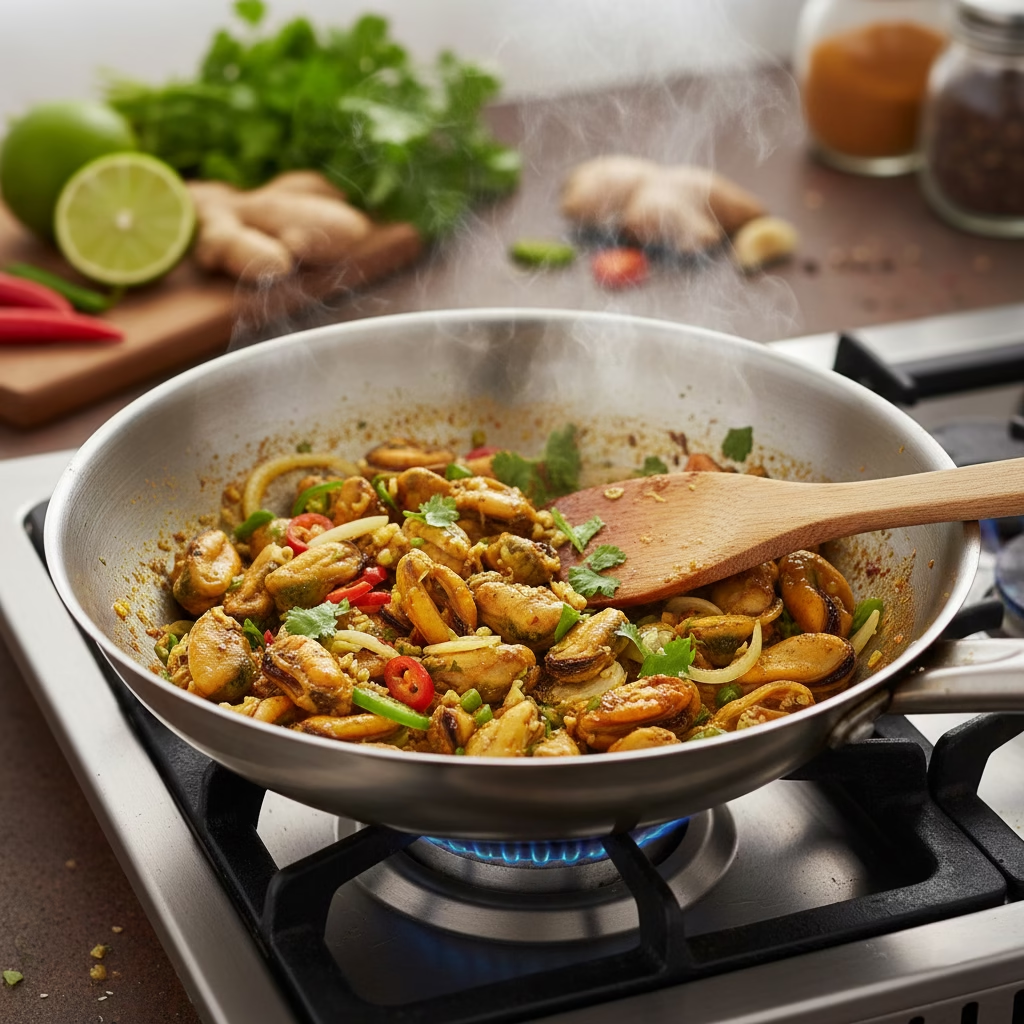
Kerala mussels are versatile and can be cooked in several delicious ways:
Marinate cleaned mussels with turmeric, chili powder, and salt.
Sauté in coconut oil with curry leaves, onions, ginger, garlic, and finish with fresh grated coconut and coriander.
Cook mussels in a coconut milk base with tamarind, tomato, and traditional Kerala spices.
Serve hot with rice or parotta for a wholesome meal.
Steam fresh mussels and serve with a lemon-garlic butter or herb sauce for a lighter dish.
💡 Pro Tip: Mussels cook quickly; add them near the end of cooking to prevent overcooking and maintain a tender texture.
🌿 Why Mussels Matter Beyond the Plate

Mussels have ecological, economic, and cultural significance:
Sustainable Seafood: Mussels are filter feeders and don’t require extra feed, making them environmentally friendly and low-impact compared to other protein sources.
Support Coastal Communities: Mussel harvesting and farming provide livelihoods for many small-scale fishermen and their families.
Cultural Heritage: Kerala mussels are central to coastal cuisine — cooked in coconut, spices, and curry leaves, reflecting centuries of tradition.
Environmental Role: Mussels filter water and help maintain marine biodiversity, contributing to healthier coastal ecosystems.
✅ Final Thoughts
Kerala mussels are a delicious, nutritious, and culturally rich seafood choice. Packed with protein, omega-3s, vitamins, and minerals, they support overall health while being relatively low in calories and fat.
However, as with all shellfish, caution is key. Always source mussels responsibly, ensure they are fresh, and cook thoroughly. Eating mussels in moderation as part of a balanced diet allows you to enjoy their taste, nutritional benefits, and traditional Kerala flavors safely.
So next time you visit a Kerala market or cook at home, try adding Kerala mussels to your plate. Your taste buds — and your body — will thank you!
Disclaimer: The information in this article is for educational and informational purposes only and is not a substitute for professional medical or dietary advice. Consuming mussels or other shellfish carries a risk of bacterial, viral, or toxin-related illness if not handled, stored, or cooked properly. Always purchase mussels from reputable sources, ensure they are fresh, and follow proper food safety practices.
Individuals who are pregnant, elderly, have a weakened immune system, or suffer from liver disease should avoid consuming raw or undercooked shellfish. For personalized dietary guidance, please consult a registered dietitian or healthcare professional.
Pungu’s Kitchen is not responsible for any illness, allergic reaction, or adverse effects resulting from the consumption of mussels or other seafood.

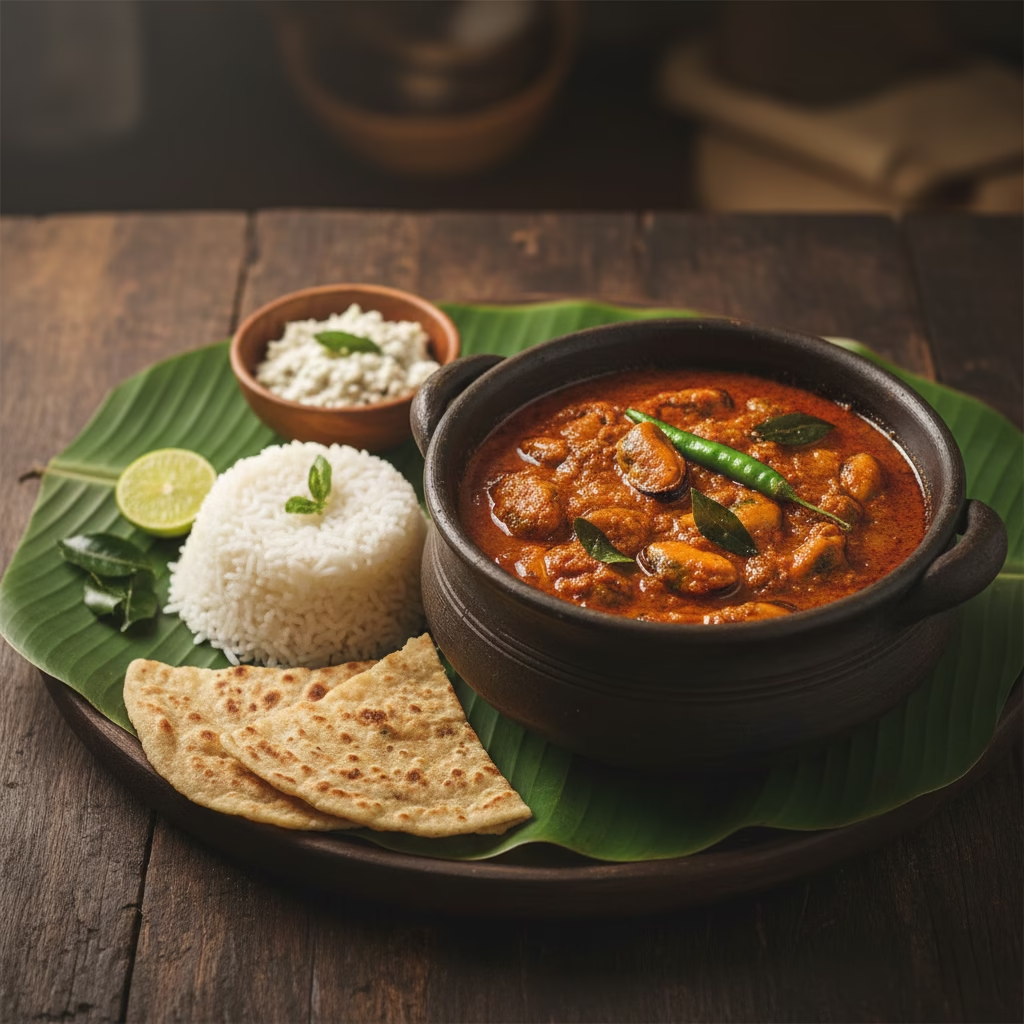
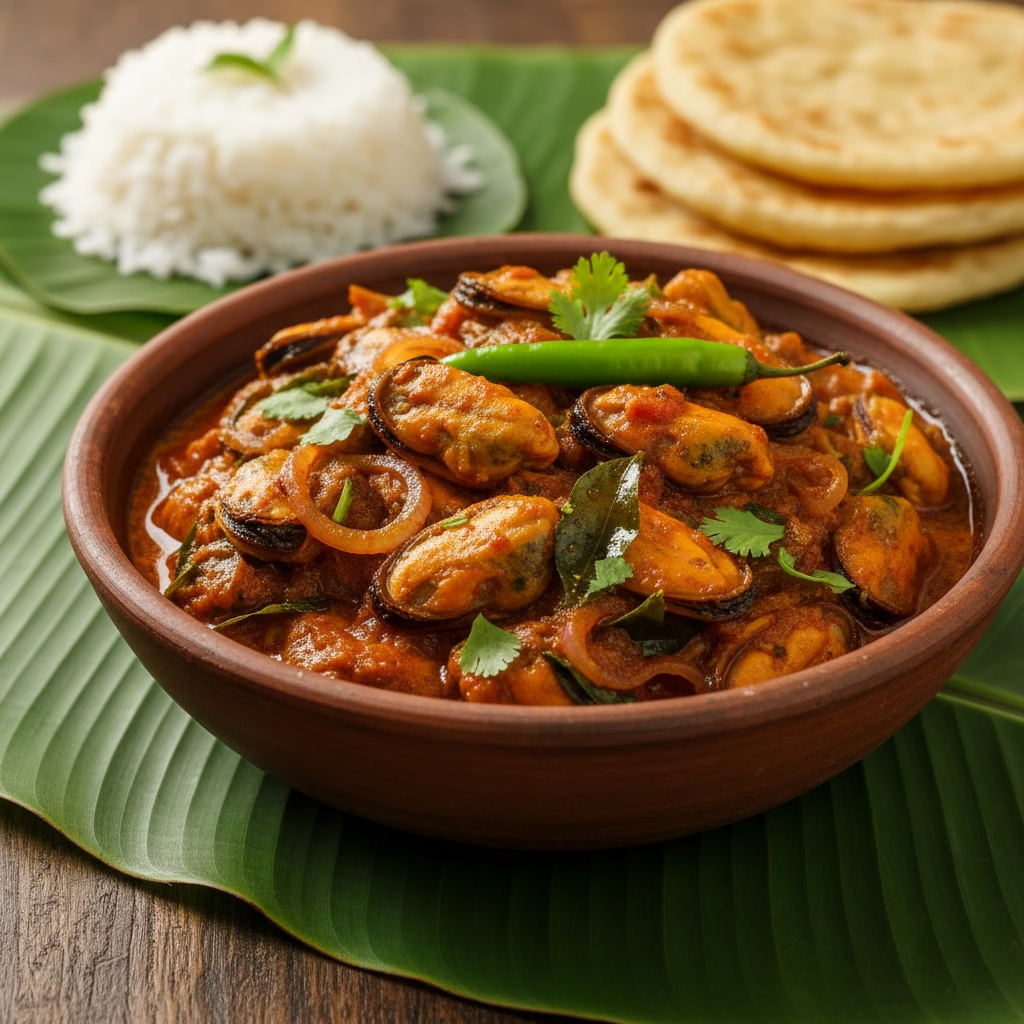
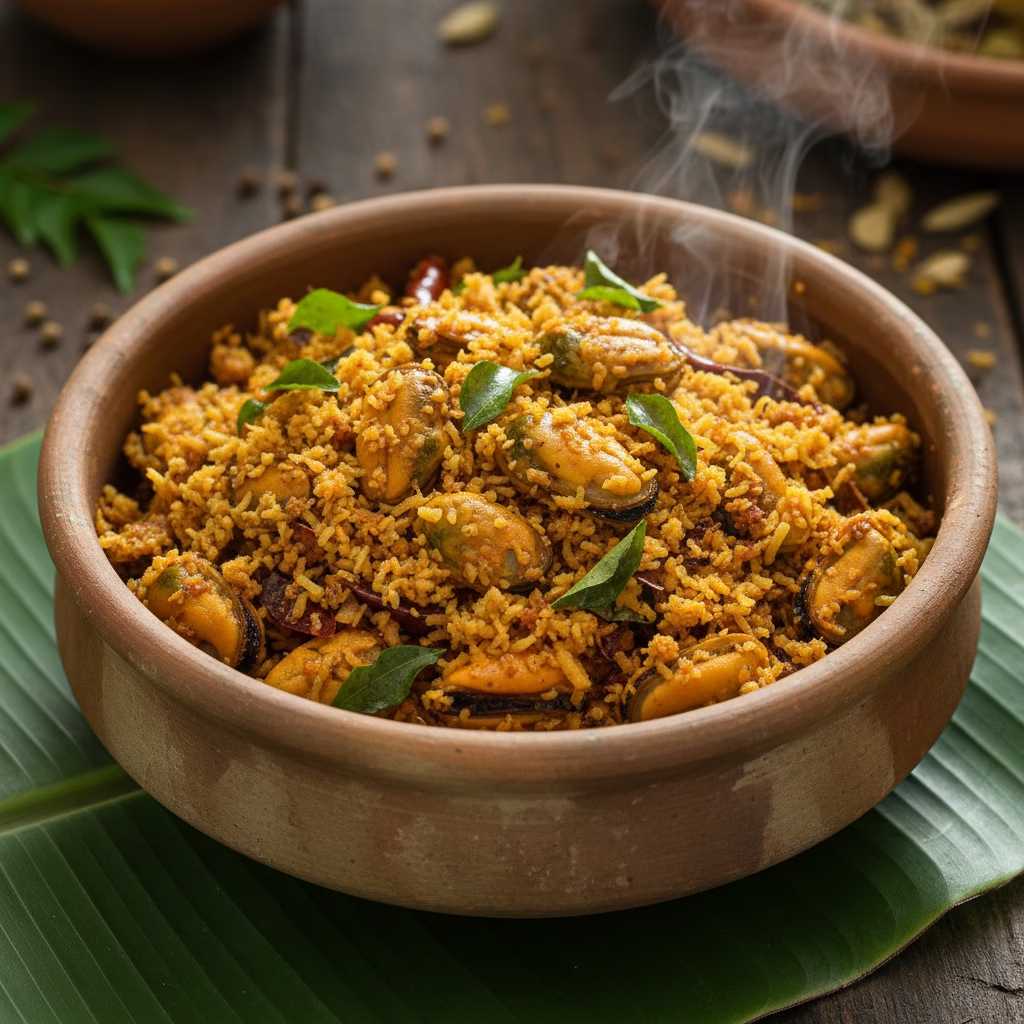
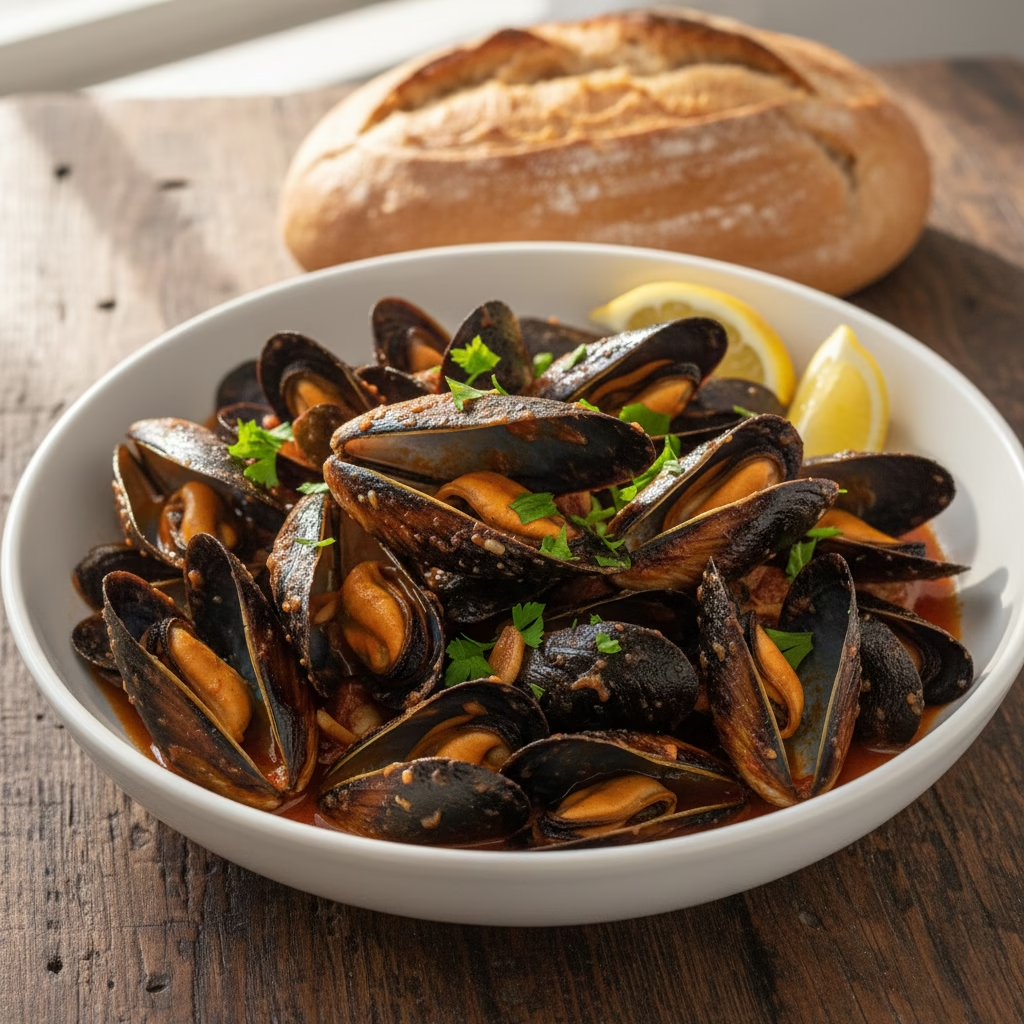

You Might Also Like
World Food Day 2025: Celebrating Food, Community & Sustainability.
This World Food Day 2025, celebrate food that nourishes, connects, and inspires....
A Comprehensive Guide to Understanding and Implementing Keto
In recent years, the ketogenic diet, or keto for short, has gained...
Milk Feeding Safety Steps for Babies: Importance, Nutrients, and Practical Tips Every Parent Should Know
International Women’s Day: Celebrating Strength, Inspiration, and the Art of Cooking.
Wishing all our readers a happy and empowering International Women’s Day! May...
Measurements: Tips for Perfect Recipes
In the kitchen, accuracy is everything! The difference between a perfectly balanced...
Kerala-Style Stuffed Squid (Koonthal Nirachathu) – A Coastal Delicacy Bursting with Flavor
A jewel of Kerala’s coastal cuisine, Koonthal Nirachathu—or Stuffed Masala Squid—brings together...